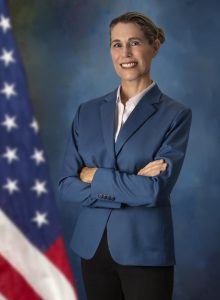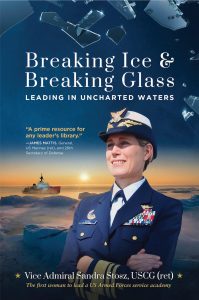Leading with Character: The Myth of Balance
I’ve done a bit of speaking on the topic of leadership this spring, and am struck by the emphasis people place on “balance.” There has always been discussion surrounding balance, but I’ve not experienced this level of passion on the topic until recently. During every panel, interview, or Q&A session following a keynote, audience members are eager for tips on how to best manage the myriad obligations of work and life. I don’t have the answer, because each individual needs to find his or her own balance, and there’s certainly no app for it! But I have some thoughts about balance that may be insightful to those who are searching.
What Does Balance Mean?
I’ve reflected quite a bit on what balance means to me, and how to help other people achieve their version. My reflections have included asking myself, “just what does it mean for a person to be balanced, and is that really the state of being one should strive to achieve?” An obituary I read in the Wall Street Journal this past weekend caused me to ponder that question, and to challenge the assumption that “balance” is the right goal for everyone. Read on and see what you think.
Is Balance the Right Goal?
Robert E. Weissman dropped out of college twice, but was no slouch. He challenged himself by pursuing things that interested him, and taught himself about the stock market and computer programming. Then he got married, and realized he needed to earn a living. He graduated from Babson College and went to work for Dun & Bradstreet Corporation in 1979, becoming the CEO in 1994. Early in Mr. Weissman’s career, he thought a manager’s job was to “keep everything in balance, to keep everything running smoothly.” But, as he rose up in the company, he discovered that it was hard to advocate for change in response to new market conditions when the company was still highly profitable. He observed, “if you keep everything in balance and everything working, you are not driving change. You are not driving innovation. You are not driving improvement.” His story caused me to question, is balance really the goal we should strive to achieve?
Seeking Growth over Comfort
I get the feeling from the questions I’m asked that people may think balance looks like the proverbial scales of justice, with both sides of the scale equally loaded at any given time. People look at one side of the scale as “work” and one side as “life,” hence the phrase “work-life balance.” They expect the amount of work to be equal to the amount of life outside of work, with everything in equilibrium and the expectation of satisfaction in that state. And the same for work and at home; everything in balance in each domain. Everybody happy. But I don’t think it works that way. It definitely didn’t for me, or for Mr. Weissman.
I’ve never felt like my life was in a state of balance. I’m goal-oriented, and have been inclined to push myself a little further than what’s comfortable. I consider myself fortunate that my employer, the US Coast Guard, my supervisors, and mentors pushed me to become the very best I could be. I was always off balance! It was hard. As the saying goes, “There’s no growth in the comfort zone and no comfort in the growth zone.” But, I learned to condition myself to embrace the changes—to anticipate what might be coming next. Instead of looking for balance, I sought methods to prepare for, adapt to, and thrive during change.
As Mr. Weissman said, if everything is in balance, you’re not pushing yourself or your organization to become better. To me, the status quo is neither personally satisfying nor professionally rewarding. I haven’t lived a very balanced life, but I’ve lived a deeply satisfying life in making a positive difference, doing my job as well as I could, and achieving my full potential. And I’m happy.
Look in the mirror. As a leader, do you encourage your people to grow by inspiring them to move beyond their comfort zone to seek new opportunities, search for innovative solutions, or improve processes?
Please join me next time for more on Leading with Character.
If you enjoyed this post, please visit my website where you can sign up for my mailing list to get this blog in your inbox, and buy my book, Breaking Ice & Breaking Glass: Leading in Uncharted Waters (proceeds from my book are donated to the US Coast Guard Academy to help develop the next generation of leaders of character): https://sandrastosz.com/book/breaking-ice-and-breaking-glass/



